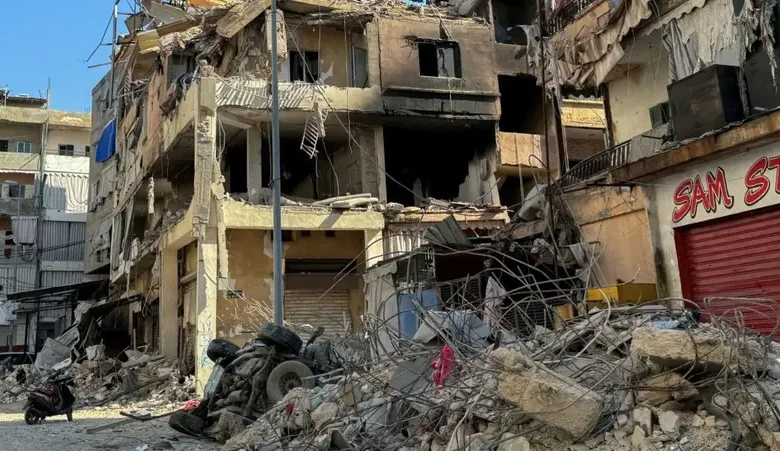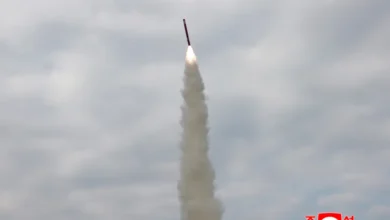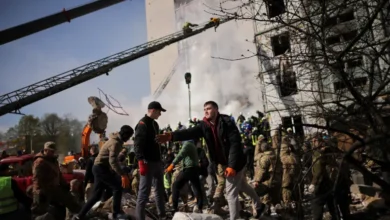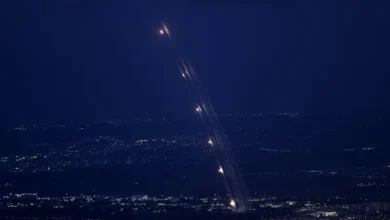US says it “will not” see Lebanon turn into another Gaza, but fears mission creep

The US said on Wednesday that it would not allow Lebanon to become “another Gaza” after Israel launched another invasion of the country last week, and it has since shown no signs of easing its bombing campaign in the capital of Beirut and large swathes of the south.
A senior White House official also has told Lebanese officials that there is serious concern about the Israeli operations inside Lebanon.
Israel has said it is conducting so-called limited operations inside of Lebanon to dismantle Hezbollah’s infrastructure and weapons, which have been used to attack Israel. The US has also supported Israel in this campaign despite saying it opposed such actions for the last year.
On Wednesday, President Joe Biden spoke to embattled Prime Minister Benjamin Netanyahu, their first call in months. The White House said the call was productive and “direct.” Biden affirmed Israel’s right to defend itself from Hezbollah, but he emphasized the need to take civilians into account during strikes, particularly in densely populated areas of Beirut.
“We cannot and must not see the situation in Lebanon turn into anything like the situation in Gaza. That would, of course, not be acceptable,” State Department Spokesman Matt Miller told reporters during a press briefing. His comments came in response to a question about Netanyahu’s speech to the Lebanese people earlier in the week, where he said if the Lebanese people did not “take back” their country from Hezbollah, it could lead to the same destruction and suffering as seen in Gaza.
Gaza has been reduced to rubble, with tens of thousands of civilian casualties. The destruction, bombing and decimation of the enclave came after a colossal security failure by Netanyahu’s government led to the Oct. 7 Hamas attack, the deadliest Israel has seen in decades.
The Biden administration has provided Israel with at least $17.9 billion in military aid since the Oct. 7 Hamas attack last year. But unlike US military aid to Ukraine, where the Biden administration publishes specific systems and dollar amounts, it remains unclear what exactly US taxpayers have funded in the form of weapons or support to Israel.
“Mission creep”
During a call with Lebanese-Americans on Tuesday night, a senior US official said Washington was concerned about civilian casualties as a result of the Israeli bombing of Lebanon’s capital of Beirut, as well as so-called “mission creep.”
Mission creep is often referred to in military terms when a campaign’s goals are expanded beyond what was initially stated.
“We’re now in a stage where Israel is actively going after Hezbollah targets in Lebanon, and we know that you’re extremely concerned about civilian deaths, and so are we,” Curtis Reid, chief of staff at the White House National Security Council, said during a Zoom call.
“We’re in regular touch with Israeli leaders where we express our concerns about civilian casualties and about the risk of mission creep,” Reid added, according to participants on the call.
Ultimately, he said a diplomatic solution would be the only way to achieve lasting stability across the Blue Line between Lebanon and Israel.
While the fighting continues, Reid said the Biden administration was continuing to work with Lebanese and Israeli officials to try to return to ceasefire negotiations. The last attempt by the US, France and several other countries failed shortly after Biden administration officials touted a 21-day ceasefire proposal that they claimed had been approved by Beirut and Israel.
Hours later, the Israeli government led by Benjamin Netanyahu rejected the deal and proceeded to conduct an operation to assassinate Hezbollah chief Hassan Nasrallah, a senior Iranian general and several other Hezbollah officials.
“We very much hope it is soon,” Reid said of efforts to mediate a ceasefire.









